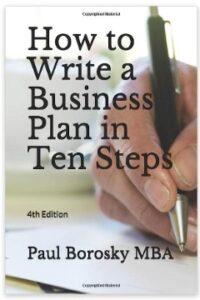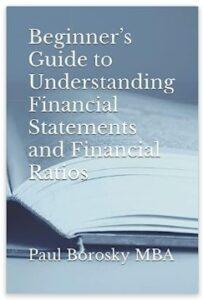How to Write an Event Planning Business Plan and Template
Competitors in the event planning industry plan and manage various events such as meetings, conventions, trade shows, birthday parties, weddings, holiday gatherings, and other event-type activities for corporations, small businesses, and private parties.
The demand for event planners has steadily risen over the past few years due to the wide range of services offered by event planning business owners. As the demand for event planners continues to grow, there is a concurrent increase in the need for well-structured event planner business plans.
The substantial growth in this industry can be attributed to several factors, both in the present and for the foreseeable future. To begin with, both corporations and families have postponed events such as corporate retreats, weddings, and other gatherings until the pandemic subsides. Professional event planning becomes increasingly crucial as more organizations and families become comfortable with hosting larger gatherings. Additionally, individuals and companies have accumulated substantial funds thanks to stimulus payments disbursed by various government agencies. These funds have been sitting in checking and savings accounts, awaiting the opportune moment to be utilized for gatherings.
Irrespective of the reasons behind the anticipated surge in demand for event planners, businesses in this industry must be prepared to meet their customers' needs promptly. Our team of business plan writers has compiled valuable tips and strategies for crafting a professional and effective event planner business plan to assist with this. Furthermore, we have developed a structured event planner business plan template to assist businesses in the short and long term (10/23).
CHECK OUT OUR EVENT PLANNING BUSINESS PLAN TEMPLATE!!!
Executive Summary for an Event Planning Business Plan.
When composing the executive summary section of an event planner's business plan, entrepreneurs should ensure comprehensive coverage of vital topics contained within their business plan. Nonetheless, our business plan writer recommends that event planning industry entrepreneurs prioritize their specialized services within the executive summary. For instance, if your organization excels in orchestrating corporate events, delve into the specifics of this specialized service. Event planners establish clear expectations for readers right from the outset by accentuating the services rendered.
Company Information and Location for an Event Planning Business Plan or Template.
Within the company information and location section of an event planner business plan, it is essential to elucidate the services your company intends to offer, the geographic area your organization will serve, and, if location holds significance, expound upon the advantages of your event planning locale. For instance, some event planners operate from facilities capable of hosting large-scale gatherings, such as weddings or corporate events. In such a business model, the location is critical in elucidating how your enterprise will excel in the market. Conversely, specific event planners traverse the country, executing corporate events for various multinational organizations. In this strategic approach, the company's physical location holds minimal relevance. Thus, assess the significance of your location from your business's standpoint and furnish the requisite details accordingly.
Need Help Writing an Event Planning Business Plan?
Call or Text Paul, Doctoral Candidate, MBA.
321-948-9588
Email: Paulb@QualityBusinessPlan.com
Hours of Operation: Monday through Friday, 8 am to 9 pm EST.
Our business plan writer is located in Orlando, FL.
CLICK HERE TO CONTACT US TODAY!!!
Product Description and Competitive Advantages
Our research indicates that event planners can be broadly categorized into generalists and specialists. Generalist event planners often operate spacious venues suitable for weddings and various celebrations. Additionally, they assist clients in designing and preparing for events, whether a small birthday party for children or a large corporate gathering. When formulating a business plan for such a venture, it is crucial to emphasize the benefits and opportunities associated with a generalist approach in the service section of the plan.
If your organization specializes in niche event planning, specify the particular types of events you excel in and document them in your business plan or event planner's business plan template. For example, if your focus is corporate event planning, elucidate why you chose this niche market and how your business strategies align with capitalizing on these specific opportunities. If you are unsure whether your business is niche or generalist, compile a list of event types you are willing to undertake and those you are not. If the "will not dos" list outweighs the "will dos," you are a niche provider rather than a generalist.
Target Market for an Event Planning Business.

The target market for an event planning company should align with the organization's core competencies and the specialized services it offers. For instance, if your event planning company specializes in weddings, your target market should encompass individuals within a 30-mile radius of your location who are planning to get married. Conversely, if your expertise lies in corporate events, your target market may comprise corporations within your region that regularly organize events requiring specialized skills for success. Aligning your target market with your niche services enhances the potential for synergy in your marketing and operational practices.
Industry Research for an Event Planning Business Plan
In the industry research section of your business plan, commence with a broad overview of your industry, highlighting popular services and presenting general industry statistics. For instance, research reveals that roughly 73% of conferences and over 50% of trade shows engage event planners in some capacity. Moreover, data indicates that the event planning industry experienced an approximately 11% growth rate before the pandemic's onset. Experts anticipate substantial market growth once the pandemic is effectively managed. This underscores the potential for well-prepared entrepreneurs to seize market opportunities as event planning demand is projected to increase.
Owner and Management Section
In the owner and management section of the event planning business plan, prioritize detailing your work experiences. If you boast a decade or more of experience in the event planning industry, discuss your prior work history, events successfully hosted, and lessons learned. After establishing a solid foundation based on your professional credentials, delve into how your educational background has contributed to your growth. By intertwining your work experiences and educational foundation, it becomes evident that leading your event planning organization is the logical next step in your career trajectory.
Funding Request for an Event Planning Business Plan.

The funding request section for your event planning business plan should commence with a specific dollar amount necessary to launch your venture. Subsequently, break down your funding requirements into specific categories. In event planning, crucial categories may include acquiring up-to-date event planning and scheduling software and purchasing furniture like foldable chairs and tables. While listing items within each category, maintain a level of specificity in the category itself. For example, under the "furniture" category, specify tables, chairs, and other necessary items. This approach provides flexibility in funding allocation if prices fluctuate. Finally, after categorizing your funding needs, present a total sum at the section's conclusion, specifying the precise dollar amount required to commence your company.
Financials and Pro Forma Financial Projections for an Event Planning Company.
When formulating financial projections for your business plan or business plan template, initiate the process by determining how many events you plan to oversee or host weekly or monthly. Estimate your revenues based on these projected event numbers. Subsequently, align your variable costs with each event. For example, an event may entail significant travel costs, including expenses for gasoline or airline tickets. Once variable costs correspond with expected revenues, extrapolate your weekly gross profits to a monthly scale. Finally, subtract your fixed costs, including labor expenses, from your gross profits to arrive at an approximate monthly profit figure for your event planning company. Using this preliminary financial model, event planning entrepreneurs can expand their projections to encompass the upcoming 12 months and even five years.
Hopefully, these insightful tips and tricks for writing a business plan were helpful. If you need help with a business plan or financial projections, email or call us.
Author: Paul Borosky, Doctoral Candidate, MBA., Author
Owner of: Quality Business Plan and Quality Business Consultant.
Date: 10/18/2023